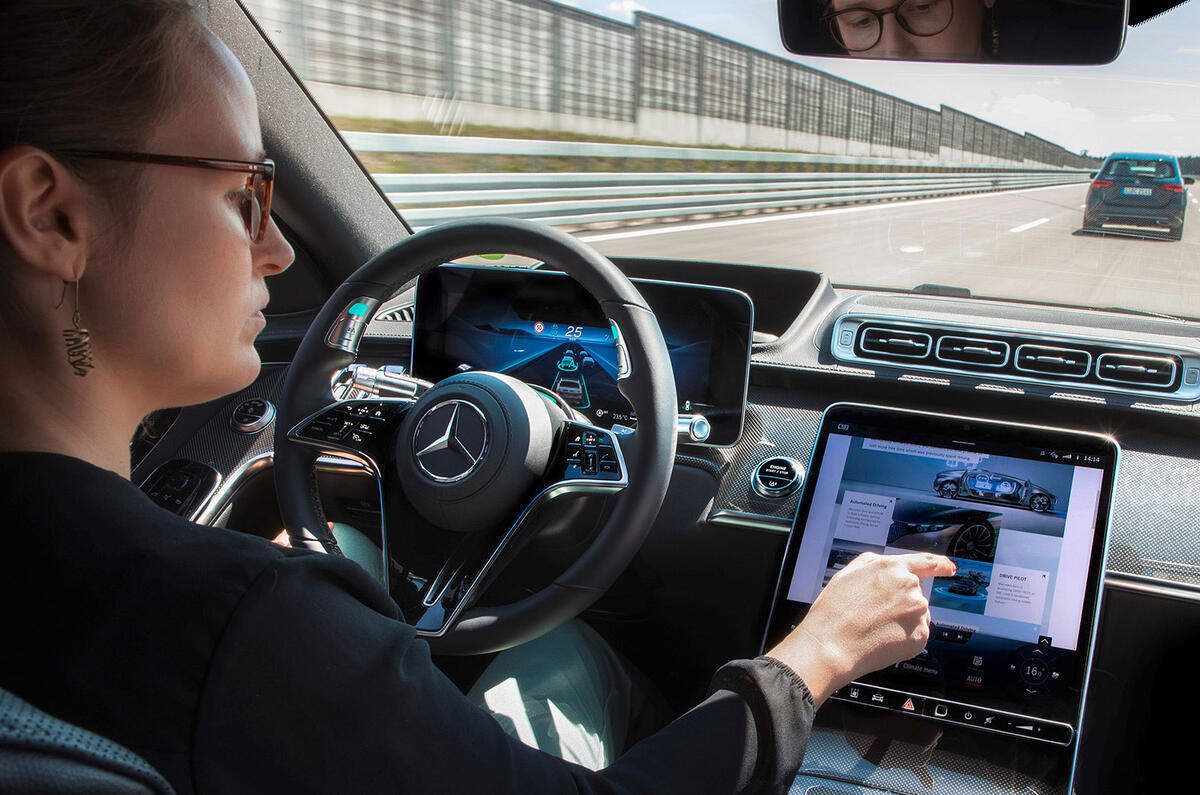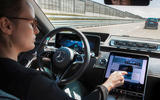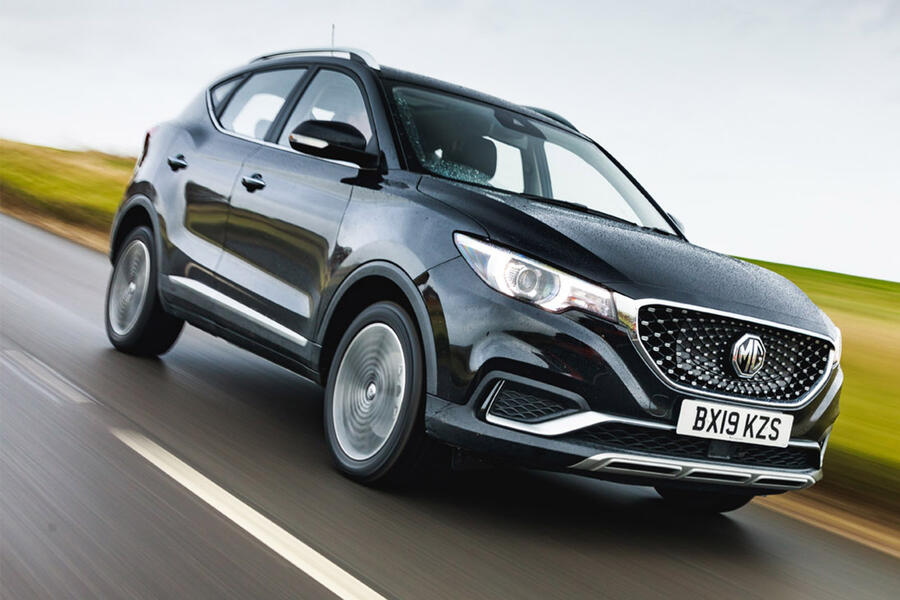The danger of drivers becoming distracted by ever larger in-car touchscreens is becoming the focus of potential new legislation as countries grapple with the reasons why road deaths and accidents are no longer falling but plateauing.
Currently, there is little in the way of regulation surrounding the design of infotainment systems and both safety experts and legislators are worried car makers are losing sight of the distraction factor in their rush to add ever more functions via the touchscreen.
Just how distracting they can be was revealed in a 2020 study by the UK’s TRL (formerly the Transport Research Laboratory). It found that operating features within Apple CarPlay and Android Auto significantly increased driver reaction times to an emergency event, even more so than texting or driving under the influence of alcohol or cannabis.
The results were an eye-opener to Neale Kinnear, head of behavioural science at TRL and organiser of the study. He had expected significant distraction but the length of time drivers took their eyes off the road for certain events went beyond his predictions.
“I was surprised by the extent,” he told Autocar. “Items such as choosing a music track, for example, on Spotify took up to 20 seconds. We just don’t have any way of understanding the impact of that on safety in the real world.”
There are signs governments are trying to find out. The UK’s Department for Transport (DfT) this year asked for experts to consult on its Roads Policing Review, established to discover why reductions in road deaths and injuries had plateaued.
The DfT considered whether infotainment systems might be to blame, given that cars themselves are becoming inherently safer. “Advances in car infotainment systems and mobile phone technology mean that there are increasing sources of potential distraction for drivers,” it wrote in the consultation introduction.
Kinnear wants to establish testing standards that are the equivalent of Euro NCAP but for distraction. “We would like to see an attention standard: what’s the level of attention the driver should be paying to the road?” he said.
TRL is in talks with the likes of the DfT and Massachusetts Institute of Technology about the possibility of setting up a testing protocol.
standard for voice control. The TRL study figures show that using voice control was less distracting than using the touchscreen but still more distracting than if you were driving at the drink-drive limit or, in the case of Apple CarPlay voice control, even texting.








Join the debate
Add your comment
Kinnear worries that post-Covid budget constraints will kick any government action into the long grass,
This should have been pre-budget, pre-brexit, pre-Y2K. How any manufacturer was allowed to get away with this technology whilst at the same time being forced into making cars ever safer is beyond comprehension.
If we go way back to car reviews in the eighties, magazines like Autocar would highlight and markdown how good a car was for having it's stereo low down, out of sight on the centre console. When the same thing is done today with a glass panel such as in a Range Rover or Audi A6, it's beautiful, modern, and desirable.
I went from a system controlled by separate mouse/wheel and much preffered it to a touch screen which i have now go over a bump and you select the wrong thing . My boss has a tesla and on satnav its so distracting as its big bright and turns with the cars movement too much and your eyes are drawn to it . God knows why heater controls are on some systems as its something you use nearly every drive .
Just get rid. A satnav with a controller, OK - but not touchscreen. The rest of this unnecessary tech - get rid. As long as it is there, it will attract driver thoughts and therefore reduce attention on the road and surroundings. Cars are for moving around in. This incessant tech adds nothing that is needed. Ban it.